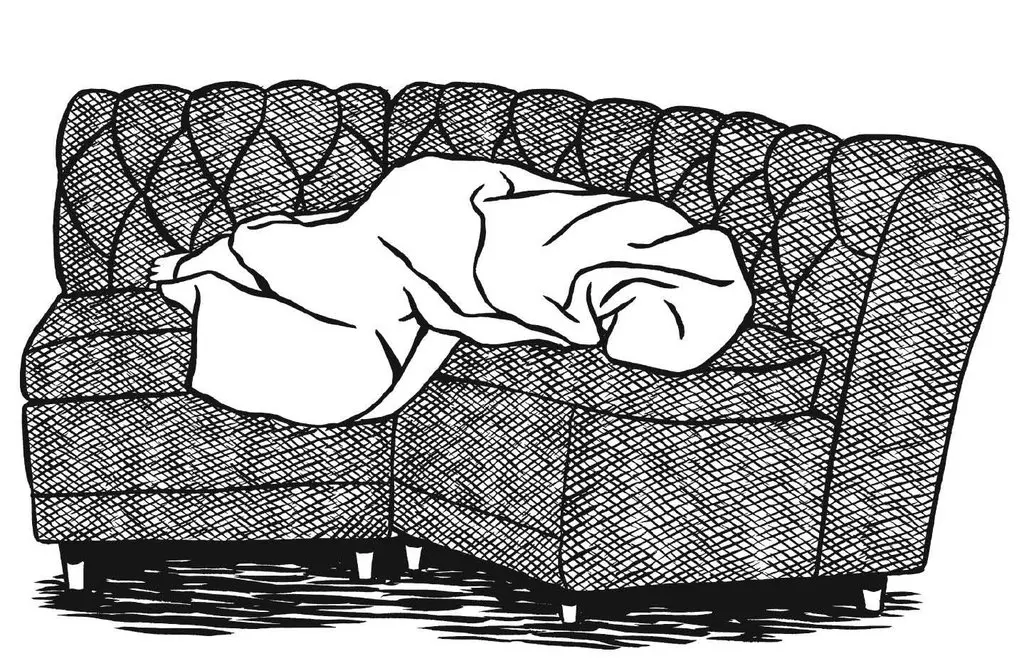Bipolar Disorder: Depression

Ps 88:4-5 NIV - I am counted among those who go down to the pit; I am like one without strength. I am set apart with the dead, like the slain who lie in the grave, whom you remember no more, who are cut off from your care.
Since bipolar disorder consists of alternating states of mania vs. depression, I've included a webpage about each. The cartoon to the left was drawn by Ellen Forney, an artist with bipolar disorder who used her graphic skills to describe what bipolar depression feels like. You can't fix someone else's depression. But your support and understanding can help. Don't confuse depression with ordinary "Feeling Down." Feeling down is often triggered by a specific event or personal setback and rarely lasts long. But clinical depression involves long-term symptoms such as withdrawing from friends and losing interest in activities one used to enjoy. How can you help a loved one with depression?
- Recognize the condition. Urge the person to get treatment and stick with it.
- Listen carefully. But don't give advice or opinions. Don't judge them. Just seek to understand.
- Give positive reinforcement and affirm their self-worth.
- Offer help if they are having difficulty taking care of certain tasks.
- A regular daily routine is usually beneficial.
- Find helpful organizations and support groups such as NAMI (National Alliance on Mental Illness).
- Urge them to take an active part in their faith, if that is important to them.
- Urge the person to take care of themselves: healthy meals, adequate sleep, and physical activity.
- Invite the person to join you on a walk, see a movie together, or engage in some other healthy activity that they once enjoyed before. But don't try to force them into doing anything.
- Watch for warning signs of suicide.
- Take care of yourself to avoid emotional burnout. Make time to do things that you enjoy, stay physically active, check in with friends, and continually renew your spirit.